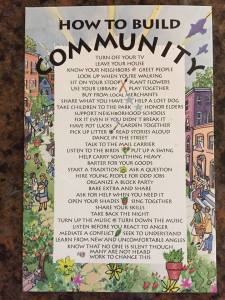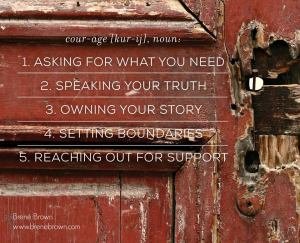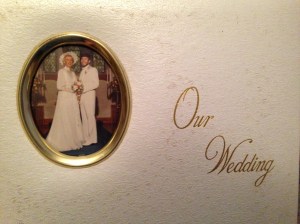This letter was sent from Evangelical faith leader Dr. James Dobson. As a faithful listener to his program for 2 decades (80’s and 90’s), I am always somewhat interested in what he has to say. I nearly blew a gasket reading this and to you, my Evangelical friends who will likely almost blow one at my thoughts, I hope we can somehow stop telling lies about the other side and find a way to live in America with each other. I cut and pasted this letter in its entirety. The bold text is full of my thoughts on what he has said.
Dear Friends,
Several weeks ago, I was invited by White House staff to visit our southern border at McAllen, Texas, where federal agents are struggling to deal with a massive influx of poor and destitute human beings. They come in never-ending waves. Please believe me when I tell you that the media and leftist politicians have not been truthful about what is going on there. It is a human tragedy.
The media and leftist politicians? Is this really what Dr. Dobson’s message must begin with? One visit, on one day does not equal a complete understanding of “what is going on at the border” for anyone, anywhere at anytime. It’s a pretty LONG border with several points of entry and the situation at McCallen is just that, the situation there at McCallen.
To frame every treatis on a subject of Dr. Dobson’s choosing with “the media and leftist politicians” completely sets the reader up to understand that hundreds of journalists, camera feeds and interviews with those on the ground in multiple places along the border ARE leftist, liberal reflections. Dr. Dobson and others have said this for so long that their followers actually believe that anyone working outside of Fox News and Conservative Christian and mainstream Conservative talk radio are a plethora of things people of faith should be afraid of.
If the Bible is true and we are told that God does not give us a spirit of fear, we can be sure that Dr. Dobson and the other predominately white male leaders among him have taken on the mantle of fear promotion for themselves.
I promised the exhausted U.S. Custom and Border Patrol agents that I would go home and tell as many people as possible what I had seen “up close and personal.” Today, I am attempting to fulfill that commitment.
Clearly, were Dr. Dobson actually watching “the liberal media and listening to the leftists” he would have heard multiple reports of how exhausted these federal workers actually are. He would also have seen very similar faces like the ones he saw across the length of the border. He would also know that our President, under the direction of Stephen Miller, entertained the idea of using the military to shoot and kill those trying to cross the border – men, women or children.
Approximately 5,500 people show up every day in districts organized along our southern U.S. border. McAllen is the site of only one of them, but it is the busiest and most besieged. The “refugees” arrive exhausted and ragged from walking hundreds of miles. Among them are large numbers of children, many of whom are unaccompanied by a caring adult. Last year, 382,000 aliens were apprehended for illegally crossing into this country and almost 100,000 of them were minors. Some of the kids have been abused along the way. Many of them carry lice, scabies or other diseases. Currently, the facility I visited is experiencing a flu epidemic, and there are no additional beds on which to lie. Some of the women have been raped. More than 70 people of all ages are sent to local hospitals daily along the southern border. Doctors and medical staff are overwhelmed by their patient load. Remember that word, “overwhelmed.” It describes every aspect of the effort to deal with the situation there.
This reality has evolved THIS YEAR and has never been the case in McCallen before. A “leftist” journalist I follow is from McClarren, Texas. On January 14, he returned home for a visit and spent time with a local journalist who has lived there for 15 years and recorded their conversation. The issue at hand was whether they needed a border wall there or not. AT THAT TIME there were no large groups of families coming in. The reporter gave a very well rounded perspective sharing thoughts from Border Patrol agents and there was no conclusion drawn at the end of the podcast. The listener was left to consider the conversation on his/her own. No condescension of POTUS just, “this is what the President wants to do, what is your perspective” I left with the assurance that my brain was quite welcome to think for itself. I don’t listen to this podcast daily, nor do I take what he says as gospel truth. He’s one of many journalists I read or listen to.
The most heart-wrenching experience occurred during our tour of the holding area. It is a huge gym-like building consisting of dozens of fenced-in areas. Each one is crowded with detainees standing or sitting shoulder-to-shoulder on benches. They stared out at us with plaintive eyes.
Again, if he actually watched the “media” from a variety of different sources, he would actually know that we have seen many faces like this too. Thus the reason we’re saying something about it. BUT the difference is that we’ve been talking about it for at least 3 years and some of us for much longer. We’ve also been fact checking from a variety of places whether the things the President has said at a given time are true or not.
I noticed that almost none of them were talking to each other. The children looked traumatized and frightened. Tears flooded my eyes as I stood before them. They had no toys or dolls, except for a few items bought by compassionate border patrol agents. One tiny little girl clutched something that resembled a doll bought for her by an agent. There are few provisions made to accommodate the children. The week before we were there, a delegation of agents went to meet with members of Congress, and begged them for additional money to buy Pampers, toothbrushes, and other necessities. They were turned down flat.
These meager supplies have to be purchased with the border patrol budget, which is stretched to the limit.
If he is going to make a claim like this he needs to tell us who was in that delegation so we can do our jobs as citizens and chew their butts out. If we knew which representatives he was actually talking about here, we’d know whether or not he was talking about the leftist liberals or not, wouldn’t we? Without that knowledge and with the way this letter is set up, it’s easy to assume they were leftist liberals (insert eye roll)
As a liberal learning about a different place along the border where several NGO’s were “turned down flat” by the Border Patrol when they showed up with Pampers, toothbrushes and other necessities, I can tell you that I am deeply disturbed about this. The BP insisted that because the law stipulates that the only items they were allowed to use had to come from federally funded sources, they wouldn’t let them in. So, who do we blame for that? Of course the law makers but when your house is burning down, you could give a rats ass about whether it’s legal to use a certain type of hose or not to fight a fire! You do what is right, period.
I sincerely doubt it’s a policy that can’t be overridden in the name of human decency – “the only way for evil to triumph is when good men do nothing”. Complex problems like this take solutions that don’t fit nicely in law books. Seriously, do BP agents really want to hold this standard and live with the stench for one thing but do they want to live with the realities like they are? Who would even prosecute their transgression if they actually took those diapers, soap, toothpaste? Seriously! There are hundreds of stories out there where cops dig into their own freakin pockets and help a citizen whether the law allows it or not. It is the insane devoted adherence to law that allowed things like apartheid and slavery to exist. Jesus really had it out with the Pharisees when they bemoaned him healing someone on the sabbath. Maybe we can stop trying to save our own hides so much and just do the right thing. I think I said that already. Oh, well.
I then walked up to a fenced area holding many skinny young men. An agent standing beside me asked if I would like to speak to them. He offered to translate for me, to which I replied, “Please tell them that God loves them.” Then I said, “Now tell them that I love them, too.” They smiled and waved timidly.
Telling a thin, starving man that “God loves them” without doing anything to ease his suffering in the moment seems a bit hollow and out of touch. Maybe some kind of genuine empathy would be in order. I can’t imagine it’s easy to think a loving God would allow a situation like this.
My heart aches for these poor people. Lest I be misunderstood, let me make clear that I am among the majority of Americans who want the border to be closed to those who attempt to enter illegally. There has to be a better solution than this. Really and truly MOST Americans know that according to the law the border IS closed to those who enter illegally. Dr. Dobson and others have been saying over and over and over that we want OPEN borders as if we want people to just come in anytime they so desire. I’m not sure how any intelligent, serious thinking person could believe that.
Right now with the asylum laws as they are, the only people allowed in and especially those in this crisis situation are coming in LEGALLY. Yes, the system is overloaded but the only solution to the crisis is to change the laws allowing people to arrive at the border requesting asylum. Until then, there is nothing we can do but take care of people the way Jesus would expect us to do. We liberals are generally devout humanitarians but that does not mean that we are eager to open the borders with no scrutiny. BUT if something is spoken often enough people seem to believe what they haven’t even intellectually processed.
I’m personally working to help my liberal friends understand the situation LEGAL refugees face here in the land of the free and the home of the brave. We do not genuinely serve them well. They live in poverty regardless of education, they work in jobs we won’t do and their daily lives are too often subject to some pretty hideous verbal and physical assaults. Those of us liberals who are aware of these realities know that WE NEED REFORM. ALL of the politicians I support are liberal and all of them agree that reform is necessary.
The harsh truth is that when the POTUS is demeaning the colleagues he cannot control and treats them like his subjects instead of his co-equals in government, the onus is first on him to change his ways and bridge the divide as much as it is on them. This is a Democratic Republic…not a theocracy or dictatorship. Really, it is. One very important task Dr. Dobson could undertake instead of joining him in the rhetoric and name-calling would be to encourage him to give up Twitter. He could also actually teach him to follow Jesus instead of just enjoy his perceived ticket into heaven.
This is America – not Republica. We liberals are in fact American citizens whether you like us or not. We will be here for as long as there is an America. There are also many, many of us who are followers of Jesus even if we don’t interpret the Bible like you do. But more importantly, every person is a human being and deserves to be treated with respect, even if they don’t deserve it.
I have wondered, with you, why the authorities don’t just deny these refugees access to this nation. Can’t we just send them back to their places of origin? The answer I received was “No,” for reasons I will explain.
Only 10 percent of the detainees are Mexicans. This year alone, people have come to our southern border from 127 countries, including Bangladesh, Pakistan, Turkey, India, China, Palestine, Albania, San Salvador, Guatemala, Honduras, and other nations around the world. They speak their native tongues, which means they can’t be understood by each other or the staff. What are we to do with them? The Mexican government will not take them back, and there is no place to send them. Our current laws do not permit us to repatriate them to their country of origin. This is a disaster with no solution or projected conclusion.
Let me tell you how these desperate people come to be our responsibility. They are the lowest rung of many societies. They sell their shanties and any other possessions to scrape together $3,500 to $10,000 to pay “coyotes” to guide them. I don’t know what happens to those who can’t meet this demand. Apparently, most manage to pay the fee, and arrive penniless and profoundly needy. I was told that some of the vulnerable children are “recycled” repeatedly to help men gain entry to this country. An unknown number of these men are hardened criminals and drug runners, and they are difficult to identify. Most make their way across the border.
Here’s something else you should know. I have been under the impression that these would-be immigrants try to cross the Rio Grande River and outrun or evade the agents. That is not true of most. They come in large groups, from 100 to 400 people at a time. As I write this letter, a record 1,200 people arrived together at El Paso. The refugees quickly give themselves up to agents. That is why they have made this journey. They know they will be fed, medicated, and treated humanely, even if they are in holding areas while they are in our custody. Then they will be released on American soil. This is the system set up by a liberal Congress and judges. THIS IS A SCAPEGOAT IF EVER THERE WAS A SCAPEGOAT. Every POTUS since George Washington has had to deal with immigration during his time in office!
It is a well-known fact that President Obama’s administration established many of these unworkable policies, and Congress is steadfastly unwilling to change them. Every effort at reform has been overridden or ignored. It is set in stone. Democrats want massive numbers of immigrants who will someday become voters. Some Republicans (YES a whole LOT of them do) support the policies because they want cheap labor for agricultural purposes. You could mention here the millions of tax payer dollars that have gone out to America’s farmers that these same workers have seen precious little of, but I digress. The border could be fixed, but there are very few in authority who seem to care. That is simply not true. History is clear that every POTUS since the founding of this country built by a plethora of immigrants who took the land away from the native people (and that really is a well known fact) has dealt with Immigration policy and reform. To blame this present situation on liberals or Obama would be as absurd as to blame it on either of the Bush Presidents or the Clintons. NOT ONE has dealt with hoards of families coming up from Central America! That is the reason these facilities are inadequate. How many border patrol agents need to say, “The facilities we have were built for single men.” Clearly we have a new problem that cannot be blamed on any one political party.
You might consider these sources if you can allow yourself to digress from your usual sources of information.
https://www.politico.com/story/2018/11/29/bush-immigration-reform-1990-1014141
https://en.wikipedia.org/wiki/Comprehensive_Immigration_Reform_Act_of_2007
https://en.wikipedia.org/wiki/Illegal_Immigration_Reform_and_Immigrant_Responsibility_Act_of_1996
https://en.wikipedia.org/wiki/Immigration_reform_in_the_United_States
Getting back to my story, our group of national faith leaders and humanitarian organizations was taken to a grassy park underneath the international bridges where the “coyotes” bring the refugees. We stood 50 feet away from them and watched as about 200 people sat on the ground. Then buses arrived to transport them to Border Control. Agents have to work fast because another group will be showing up soon, and then another and another. The would-be immigrants are taken to the center and given cursory medical exams. Then they are segregated by sex and age and placed in the fenced-in areas to be held for the next 20 days until they are processed and given a Notice to Appear. If that sounds inhumane, what would you or I do? There is simply no other place to “house” them.
Mismanagement of the border has a long history. A federal judge years ago issued a ruling called the Flores Settlement Agreement. It is still the source of many problems. It requires that any unaccompanied alien child must be released within 72 hours. This is now the law of the land, and poor people around the world know it. A single male typically seeks to find a child and a woman to help him “game the system.” Clearly, many of these are “fake families,” but there is no documentation in Pakistani or Bangladesh to challenge their claims. Lawyers at home have told them to claim that they are fleeing from oppression or seeking asylum. They are allowed to plead their cases to judges, but there are too few of them to keep up with the volume. These people are given a court case and released. The vast majority are never seen again. Most then become “anchor babies” who are citizens with rights to bring members of their families. Others are given transportation to an American city where they disappear into the culture.
In addition to this influx of people from places around the world steeped in poverty and despair, Senator Chuck Schumer authored and helped pass a “lottery” system, whereby winners are brought to the United States. They become permanent residents, who then begin bringing their families to our shores. Thank you, Senator. And where did your ancestors come from? Who allowed them to come to “our” shores?? They came in droves from Europe and were given free land. They became permanent residents in numbers that would make the situation at the border seem like nothing.
Senator Schumer tried to bring a solution to a problem, the House, the Senate and a President chosen by Americans signed the bill into law. A new reform has to take place in a new time in History with new facts, new problems and new complexities. Vilifying Senator Schumer – is not doing anything but allowing Dr. Dobson to vent his own frustration. He is still there and will have to be worked with so I don’t know how this is at all helpful.
Ten years ago, 90 percent of illegals apprehended at the border were single males, mainly from Mexico. Now, more than 50 percent show up with babies and children, and 90 percent of them are from countries other than Mexico with 64 percent being family units or unaccompanied alien children. Together, they claim to be “families” and within three weeks, they will be home free in America. Is there any doubt why there have been more than half a million illegal immigrants this year alone?
10 years ago, the world was a bit of a different place, wasn’t it?
Before I conclude, I must tell you about the agents who have to deal with this chaos. They are compassionate men and women, sworn to uphold federal law and protect our borders. And you think that we liberals don’t care about them because our leftist media reports on the bad hombre’s among them? Interesting.
They obviously care about the detainees, and I respect them highly. They work tirelessly feeding people three times a day and providing clean clothing. They must also maintain the portable toilets in the cells. It is a never-ending task. There are only two large showers in the facility, one for males, the other for females. Their capacity is for only 20 people at a time, which is insufficient.
The border patrol agents administer this program, but most of them didn’t sign up to be caregivers. Agents were trained to patrol the border and apprehend drug runners, traffickers, smugglers, murderers, and every kind of lawbreaker. This is very dangerous work. But, please understand this: the border patrol agents are so busy caring for refugees seeking entry to the United States that they have very little time to police the borders. It is so porous that huge quantities of contraband, including all kinds of narcotics, flow into this country every day. Then it is transported northward to America’s cities to be consumed by adolescents and millennials. Lawless gangs, such as MS-13, are also pouring into the culture, making violence for inner cities a way of life. There is one more aspect to the work of the agents that you should know. They are openly hated by citizens who resent the work they do. They are routinely vilified and mocked and demonized. Their families are also subjected to ridicule. These agents need our appreciation and prayers. They have one of the most thankless jobs in America.
The situation I have described is the reason President Donald Trump’s border wall is so urgently needed. He seems to be the only leader in America who comprehends this tragedy and is willing to address it. This is so untrue I’m not even going to bother. I will say he’s the only one in America combining his delusional reality with a very real one and trying to make America think that his border wall will solve THIS crisis. Dr. Dobson himself, though not intending to, has explained exactly why this current crisis has nothing to do with the need for the border wall. That’s another argument entirely.
Those who oppose him do everything they can to impede his effort. Dr. Dobson of the 1980’s would have never given a guy like Trump the time of day. In fact he and others would have been all over the indiscretions, the narcissism, the infidelity, the criminal behavior, the habitual lying, heck, along with Larry Burkett they would both be going ballistic over the increase in the federal debt and the continued deficit spending under Trump. They might have even challenged his bizare and lavish lifestyle (golden toilets, anyone). Dr. Dobson was always the first to let us know if he thought Hillary or Bill were lying, remember? Now he claims that we’re opposing a habitual liar! The same Dr. Dobson who had program after program on teaching our kids morals and values, telling how to have strong marriages and basically teaching us all things thought wholesome, now embraces a man like Donald Trump? I. don’t. get. it.
That is why I went to the border to see the situation for myself. I came away with an array of intense emotions. Your intense emotions were geared up and ready to find validation of your already skewed worldview. First, I was profoundly grieved over the misery of thousands of people. Second, I felt a deep appreciation for those who are doing their best to help in an impossible circumstance. Third, and frankly, I was angry at the political fat cats It’s so tempting to insert a photo of the current POTUS in right here but that’s a bit too below the belt…who have deliberately allowed this chaos to occur for political or financial gain. Oh, that is rich coming from a devout follower of the man in power gaining millions day after day for his own personal empire because now he has Jesus in his heart! They, and their friends in the fake media have told the American people that there is no crisis at the border! Shame on them all. No, shame on YOU, Dr. Dobson. Because you only get your news from sources you agree with, you are grossly misinformed. The border wall is one topic and that topic has nothing to do with THIS present situation – and you know that.
What I’ve told you is only a glimpse of what is occurring on the nation’s border. I don’t know what it will take to change the circumstances. I can only report that without an overhaul of the law and the allocation of resources, millions of illegal immigrants will continue flooding to this great land from around the world. Many of them have no marketable skills. They are illiterate and unhealthy. Some are violent criminals. Their numbers will soon overwhelm the culture as we have known it, and it could bankrupt the nation. America has been a wonderfully generous and caring country since its founding. That is our Christian nature. But in this instance, we have met a worldwide wave of poverty that will take us down if we don’t deal with it. And it won’t take long for the inevitable consequences to happen.
Thanks for letting me set the record straight. NO, you did not set a record straight. You spoke like you know the absolute truth from one day at the border and a lifetime of learning to de-Americanize anyone who thinks different from you.
P.S. I want to conclude this disturbing account of the border situation with a suggested “action item” for the reader. There is one solution as I see it, which is for people of faith to pray for our President as he seeks to deal with this humanitarian crisis. And pray more curses on Nancy Pelosi and the other demonic liberals. He is facing enormous opposition from both political parties, the mainstream media, the entertainment industry, the judiciary, portions of agriculture, powerful lobbies, and virtually every dimension of the culture. Well, my goodness, one would think AMERICANS have issues with the pathological liar, narcissist, impulsive very ill man with mental illness-who Dr. Dobson should actually recognize being a psychologist and all. But agenda usually has more weight than reality for most of us. I know of no one with political influence besides the President who seems to care about the crisis at the border. It’s very sad that you know of so very few good people in government. Will you join us in making it a matter for concerted prayer? NO, but I will continue to search for real facts, I will continue to pray every day for this situation and that Republicans return to sanity.
This letter may be reproduced without change WELL that’s good to know. and in its entirety for non-commercial and non-political purposes without prior permission from Family Talk. Copyright, 2019 Family Talk. All Rights Reserved. International Copyright Secured. Printed in the U.S. Dr. James Dobson’s Family Talk is not affiliated with Focus on the Family.
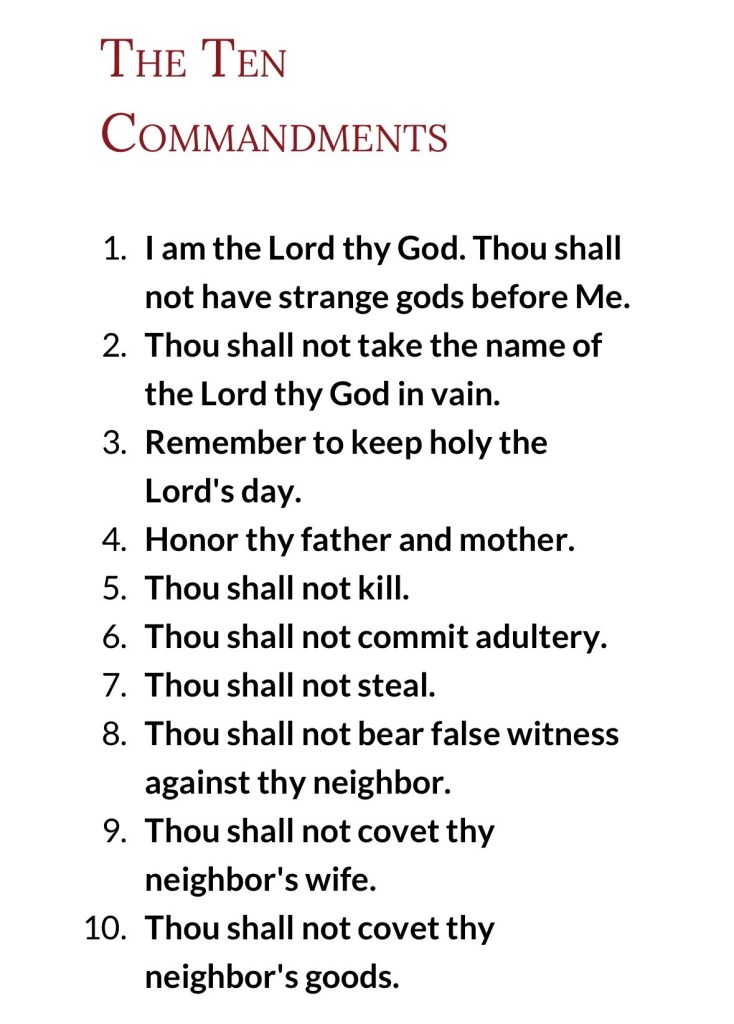
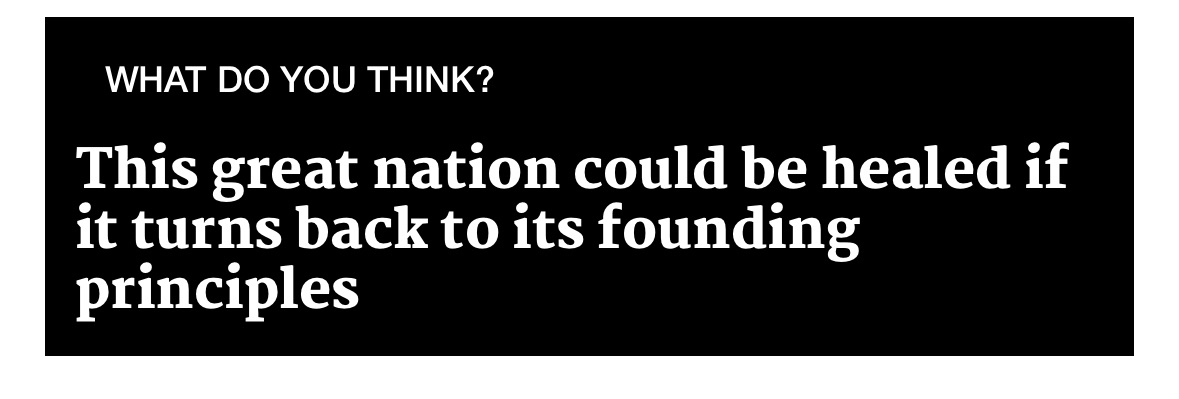

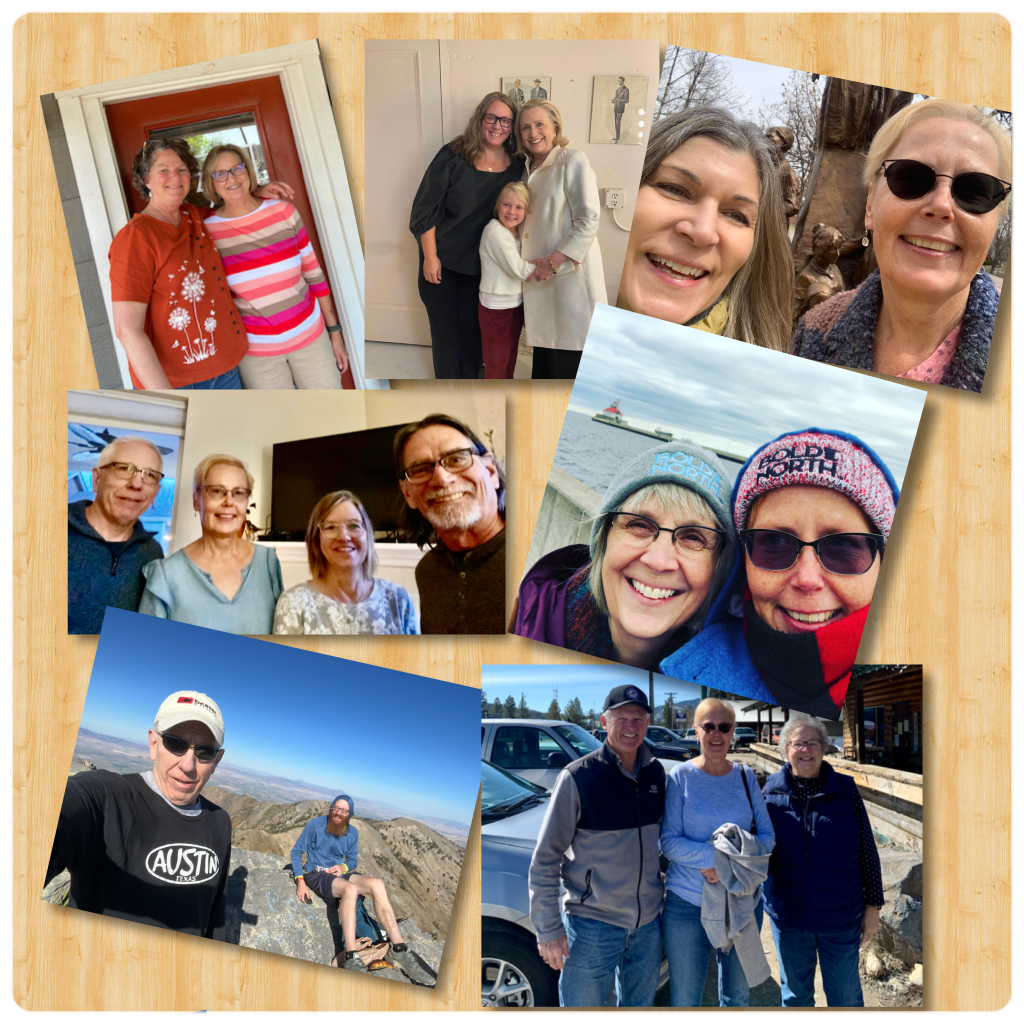


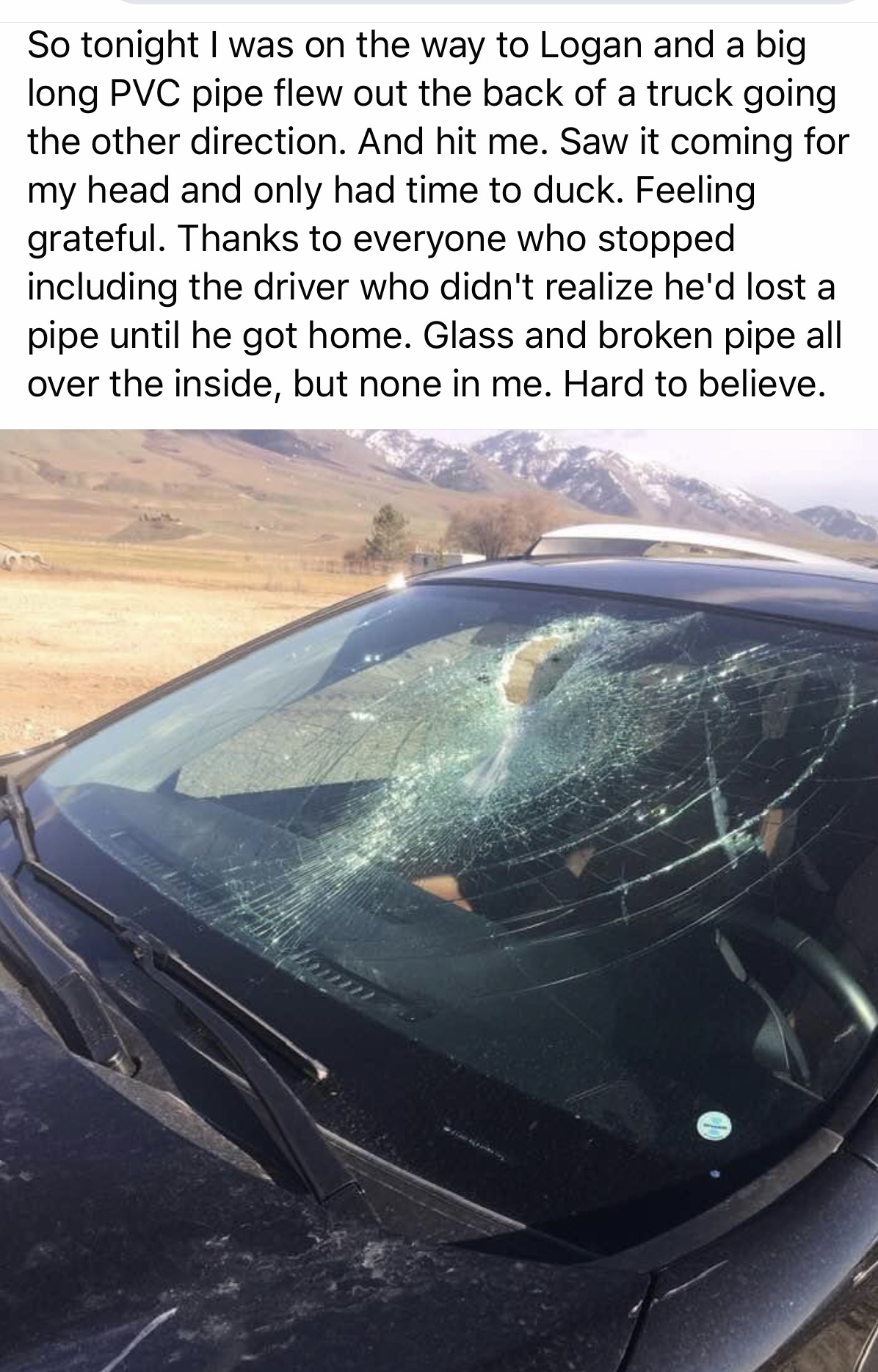
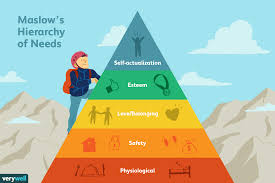
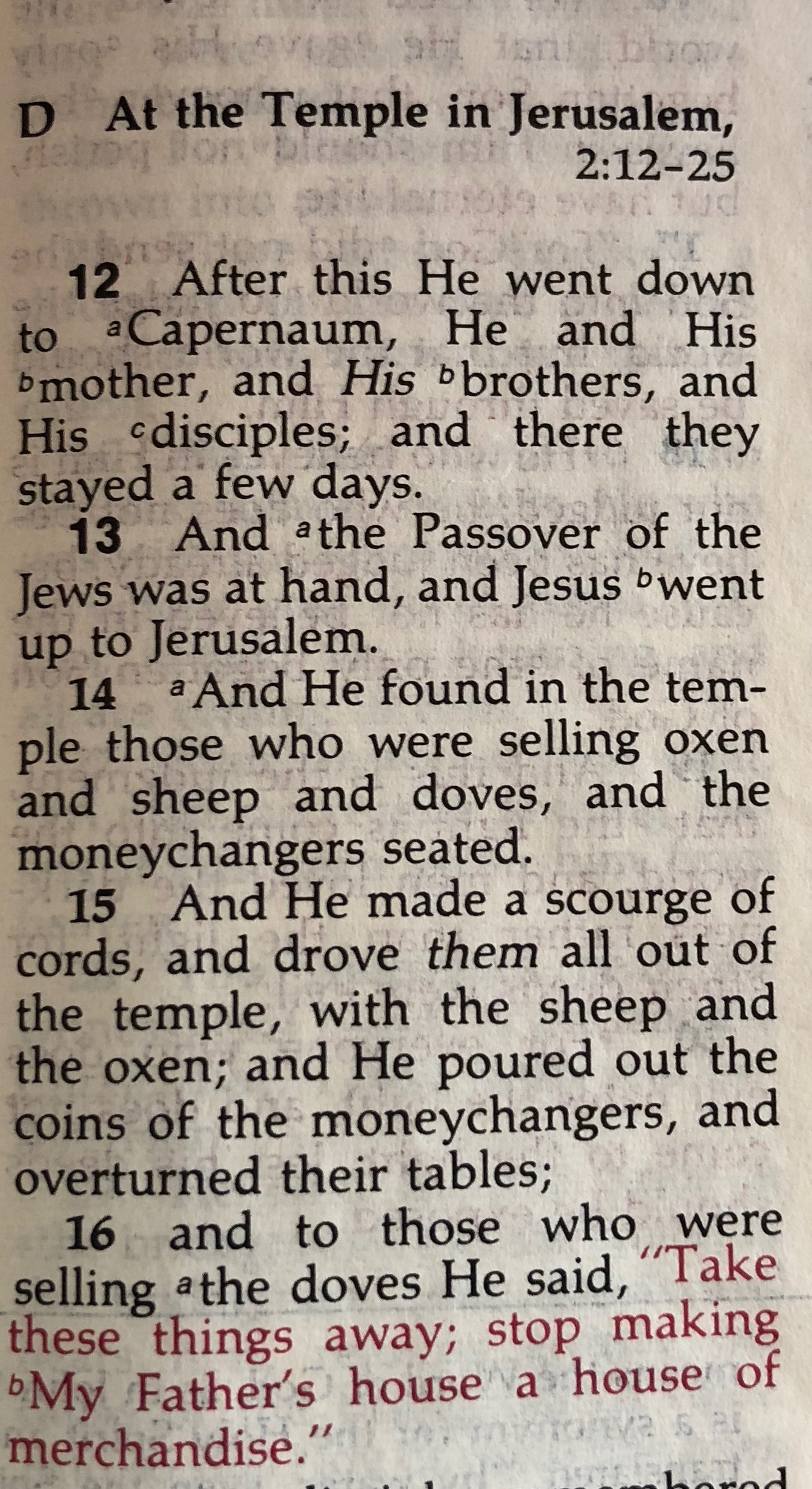
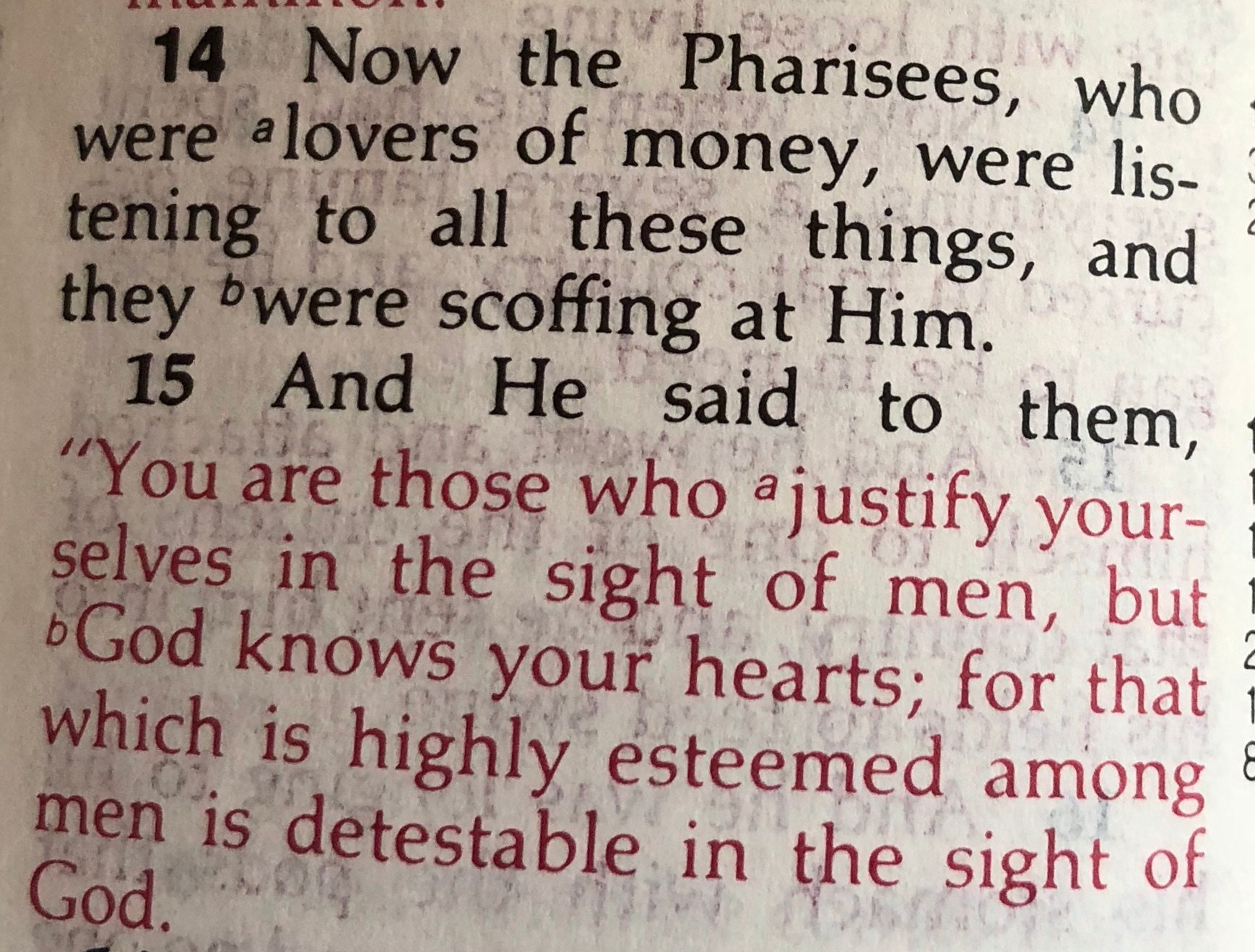 How about these in the gospel of Matthew?
How about these in the gospel of Matthew?


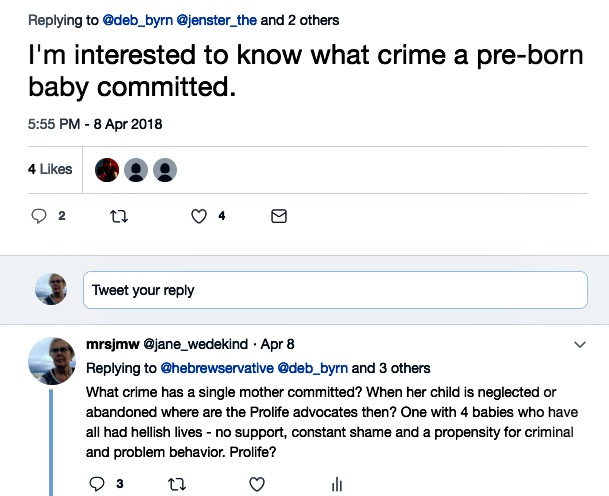

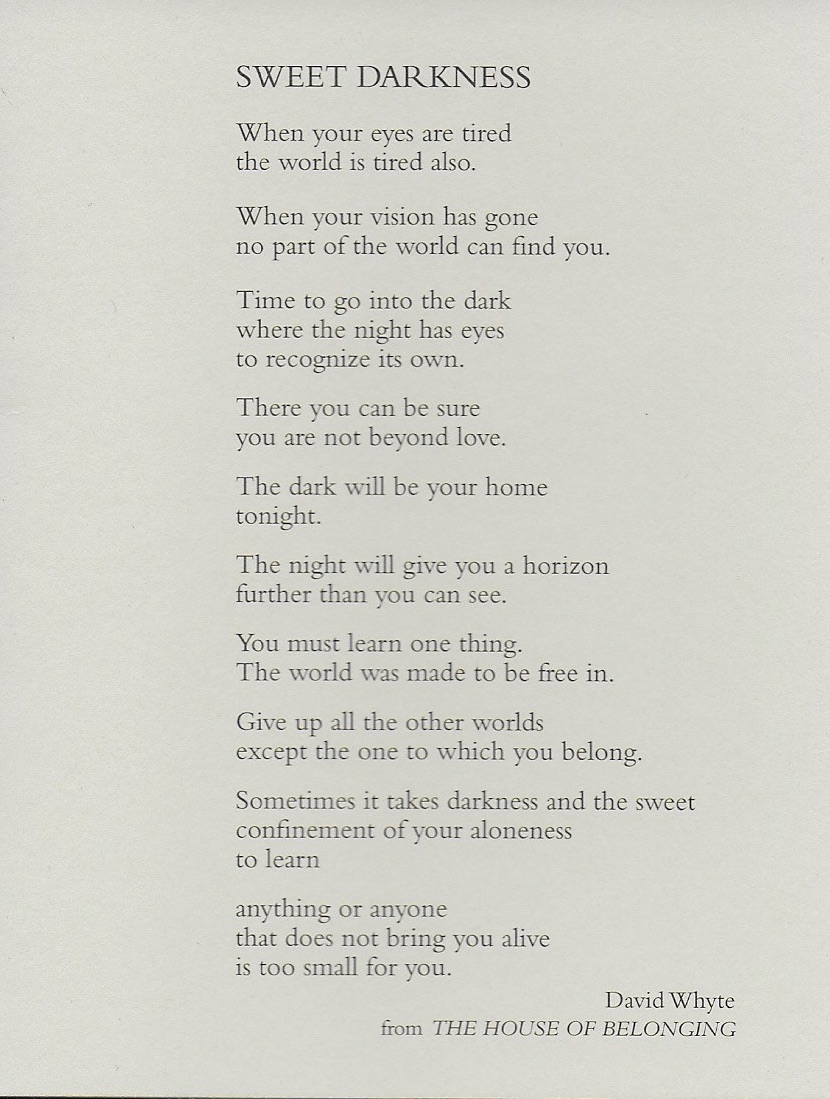

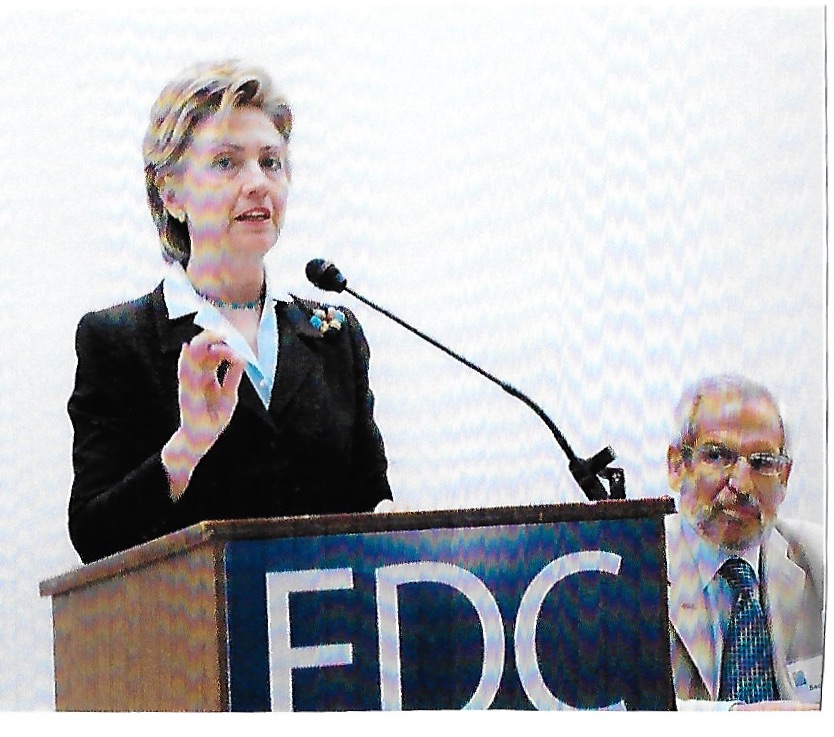
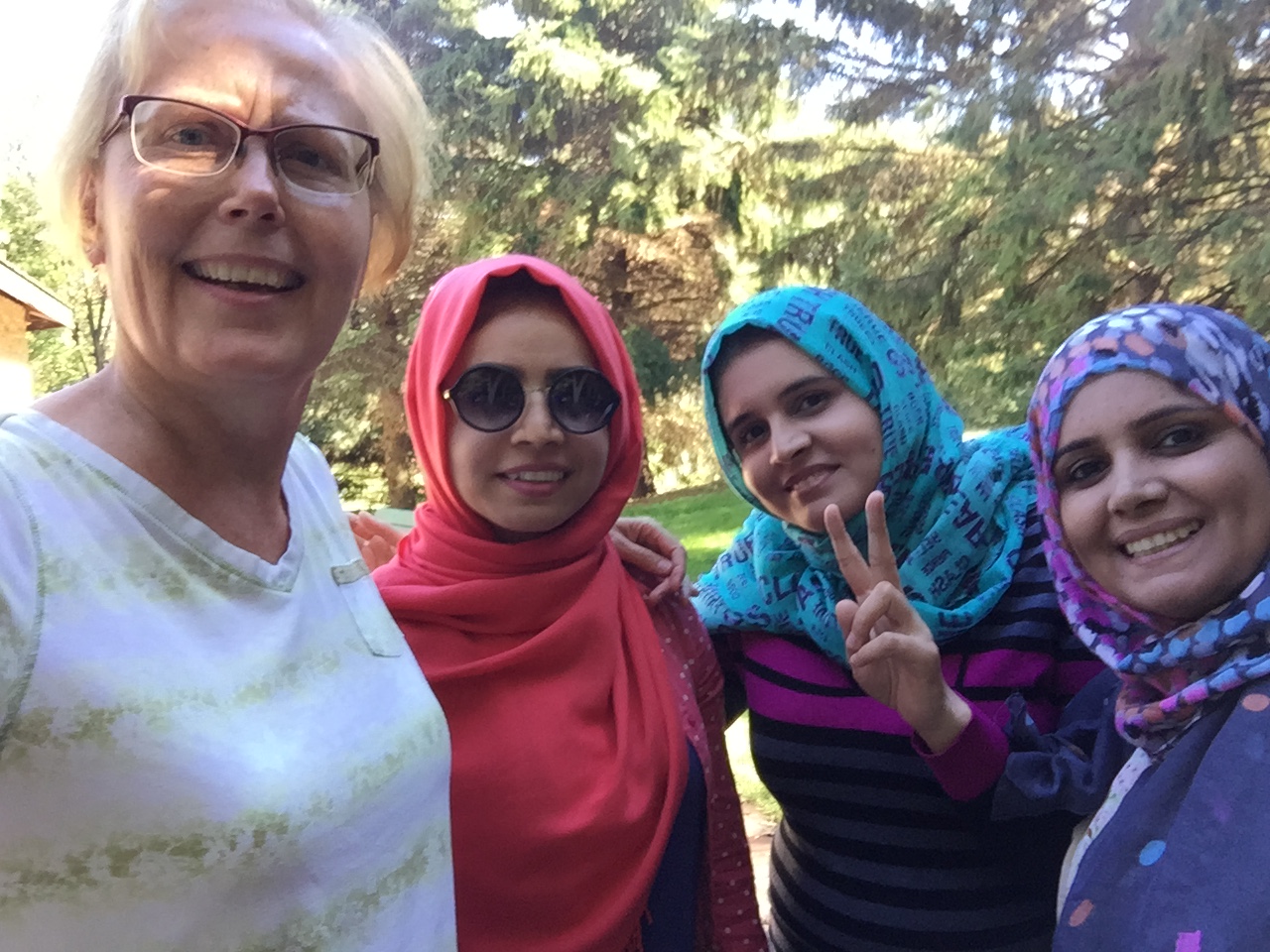
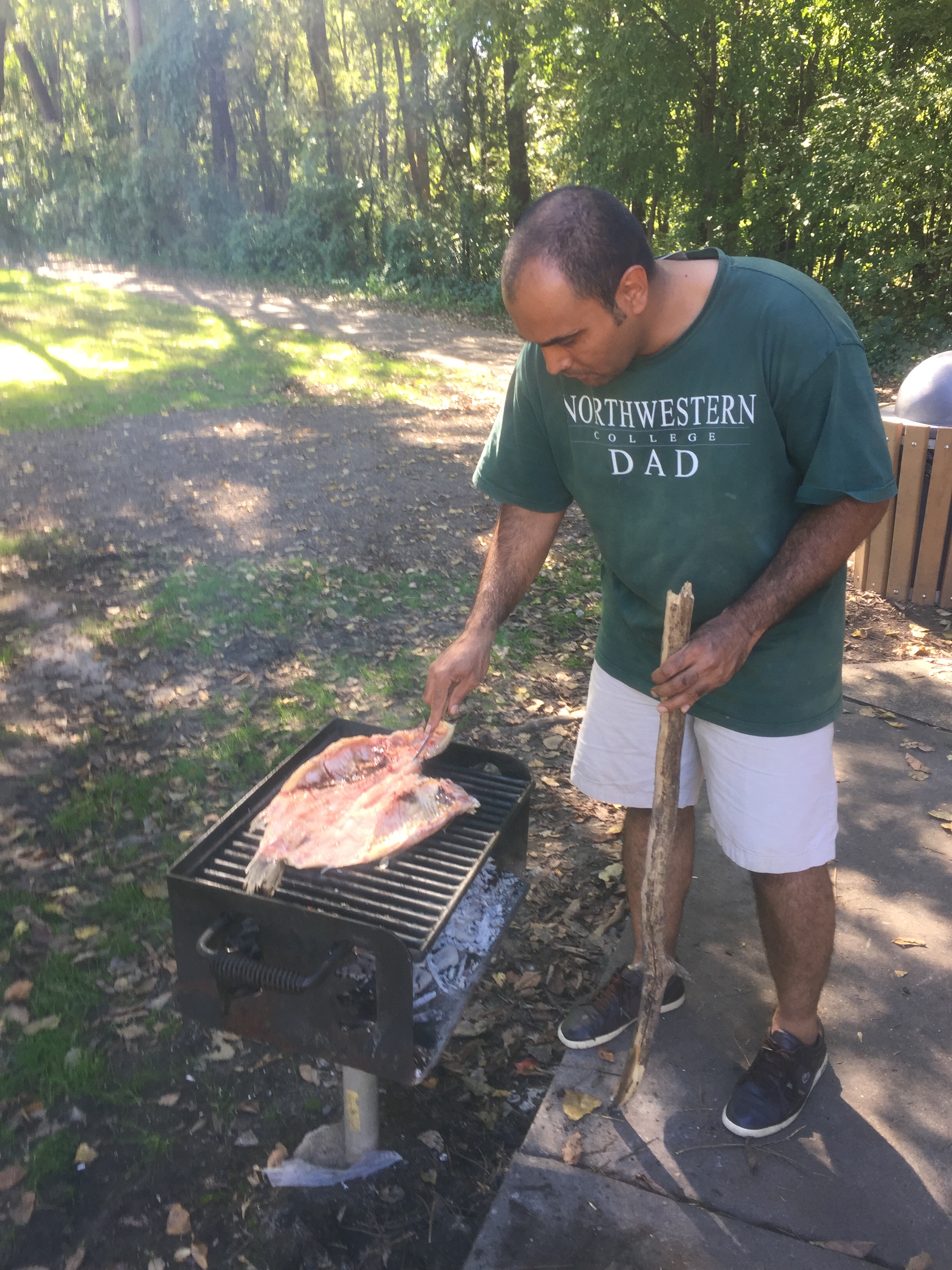
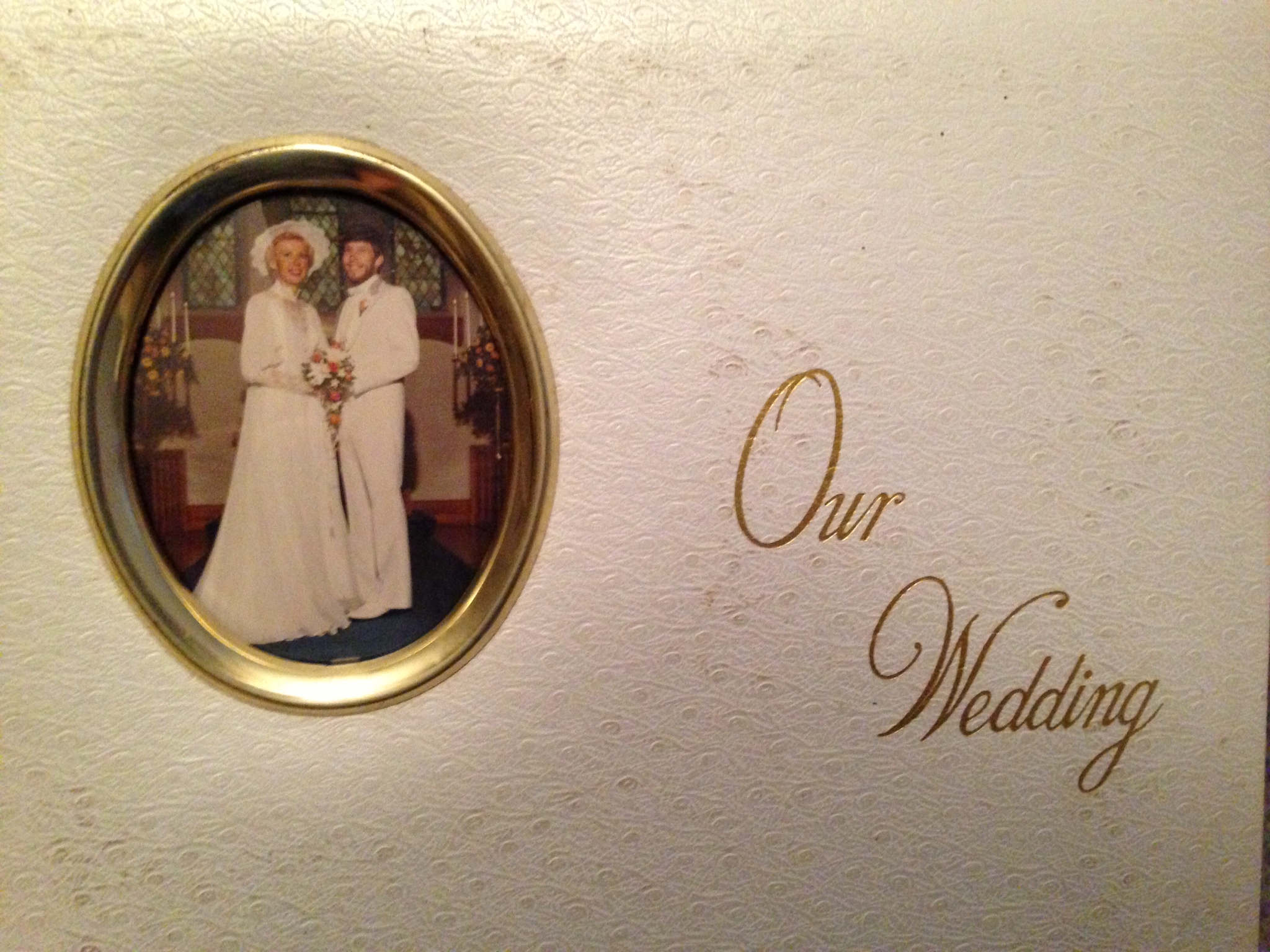
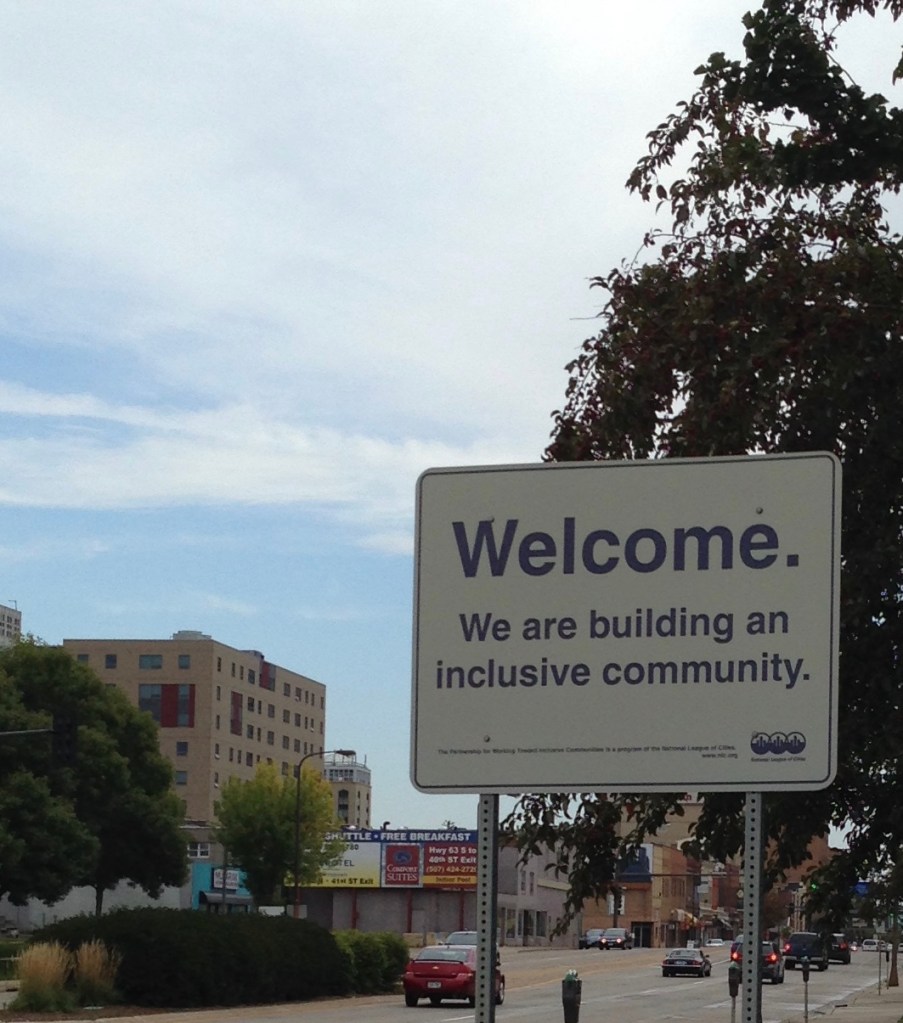 One of the reasons I love going to Rochester is because there are people there from all over the world but more importantly because the community itself strives hard to be an inclusive community. This sign greets you as you come into the downtown area. One of the most interesting things about going to the Mayo Clinic itself, however, is that almost any time I sit in the lobby or in a coffee shop, I will overhear a conversation from someone about “those” people. Once, when a Saudi man walked by me and this obviously wealthy Texan couple, the man looked at me and said, “I can’t believe how many of them are here. It’s just disgusting how they treat their women!” Without even knowing what I thought about it, the woman went on to tell me about a Bible study she was in that exposed what they really believe and how horrible it was. All the while they were talking and expecting my “amen”, I just grew more and more uncomfortable with the conversation and did my best to change the subject and treat them well as their humanness deserved. I was so caught off guard that I really didn’t know what to say.
One of the reasons I love going to Rochester is because there are people there from all over the world but more importantly because the community itself strives hard to be an inclusive community. This sign greets you as you come into the downtown area. One of the most interesting things about going to the Mayo Clinic itself, however, is that almost any time I sit in the lobby or in a coffee shop, I will overhear a conversation from someone about “those” people. Once, when a Saudi man walked by me and this obviously wealthy Texan couple, the man looked at me and said, “I can’t believe how many of them are here. It’s just disgusting how they treat their women!” Without even knowing what I thought about it, the woman went on to tell me about a Bible study she was in that exposed what they really believe and how horrible it was. All the while they were talking and expecting my “amen”, I just grew more and more uncomfortable with the conversation and did my best to change the subject and treat them well as their humanness deserved. I was so caught off guard that I really didn’t know what to say.
